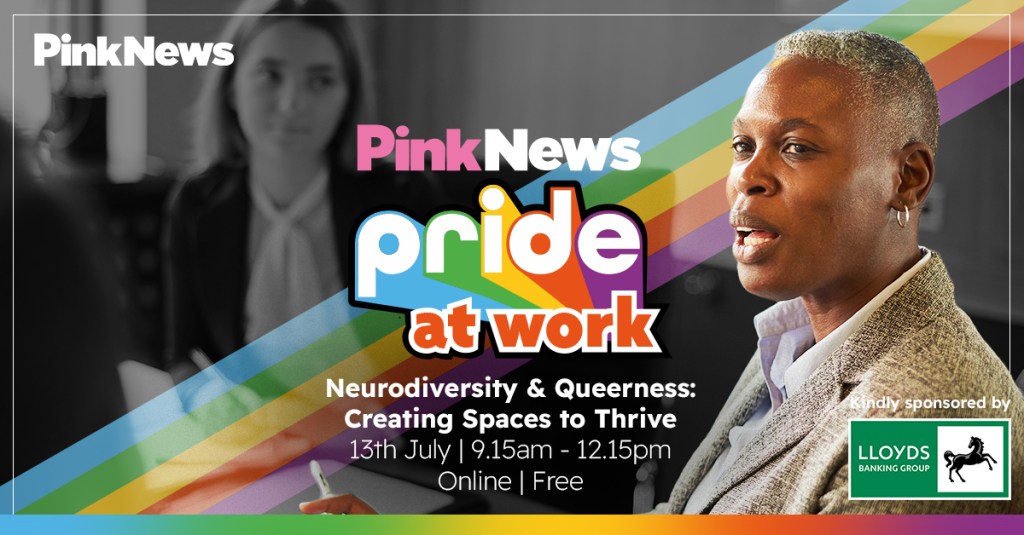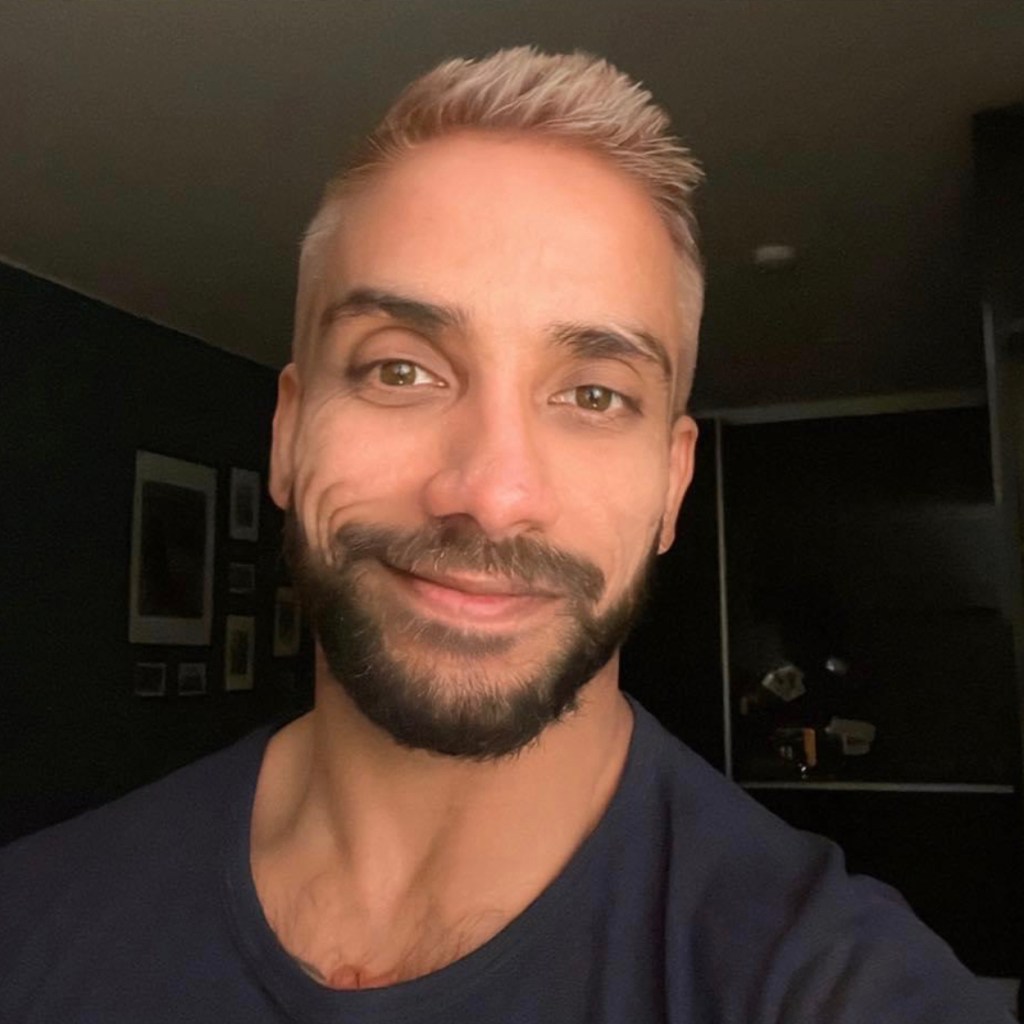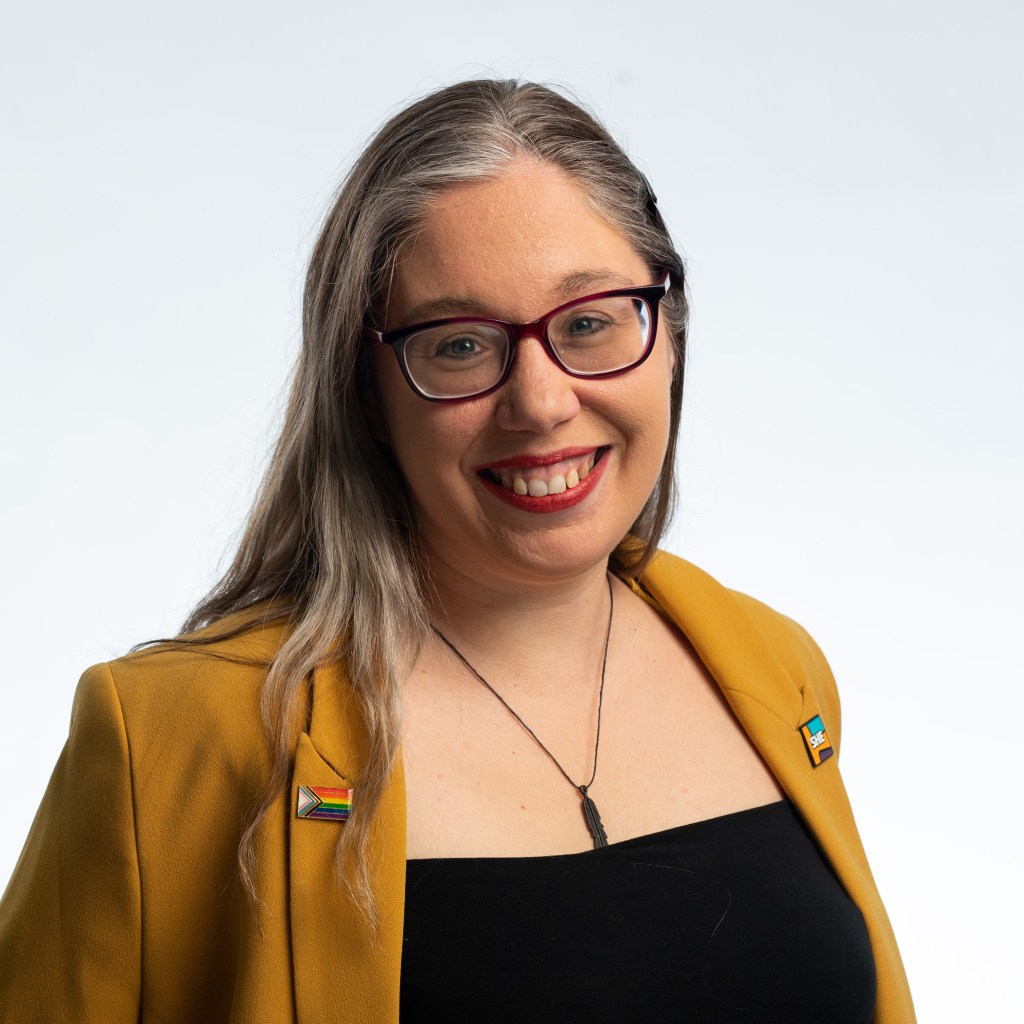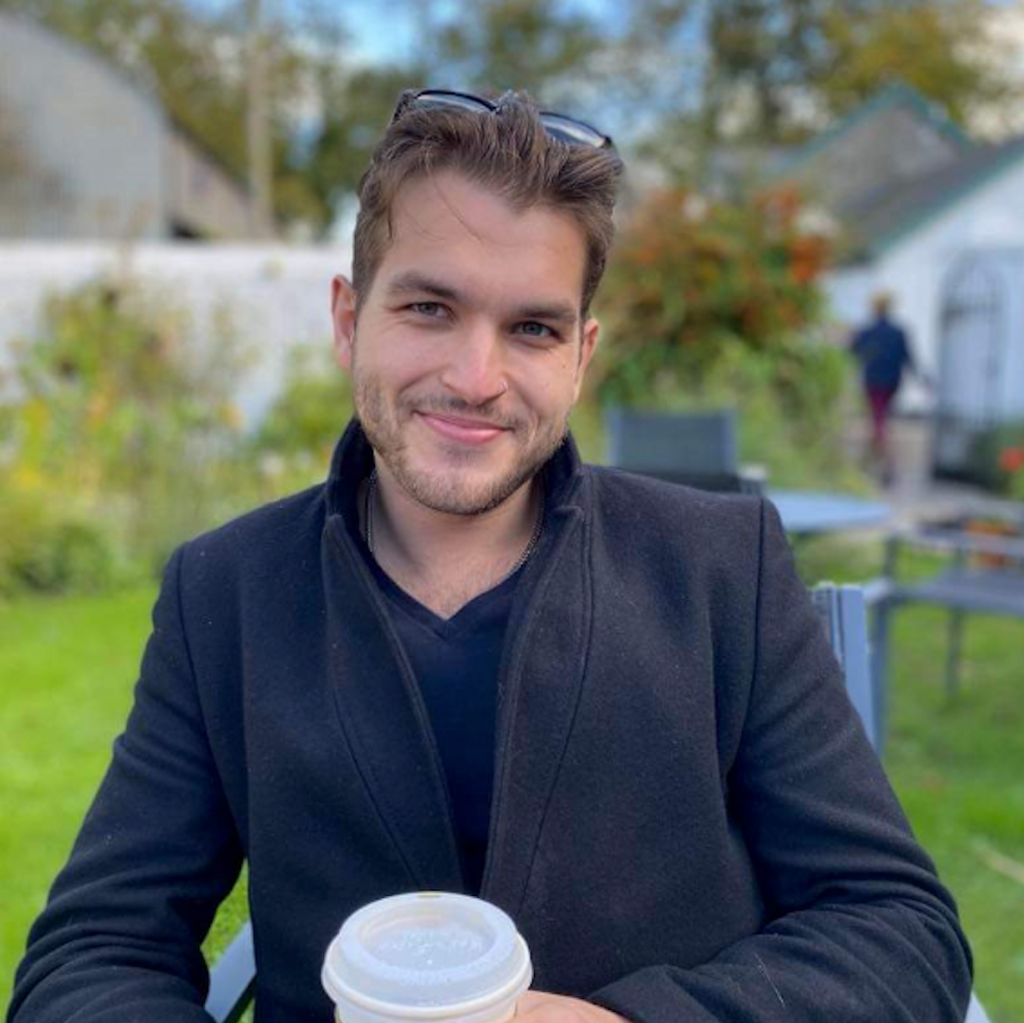Queer neurodiversity at work: ‘It’s about trying to accept myself rather than shame myself’

Four queer experts on neurodivergence share their experiences with PinkNews. (Supplied/PinkNews)
Following the PinkNews Pride at Work webinar, Neurodiversity & Queerness: Creating Spaces to Thrive, we find out how queer neurodiverse people are navigating the workplace – and how employers and colleagues can help create a truly inclusive culture.
The workplace can be a minefield for queer and neurodivergent people alike: Negotiating professional demands, relationships and environments while deciding how and if to disclose aspects of your personal life and identity can be a constant source of anxiety.
For those who are both LGBTQ+ and neurodivergent, this is often amplified, which is why PinkNews’ recent Pride at Work webinar, Neurodiversity & Queerness: Creating Spaces to Thrive, sponsored by Lloyds Banking Group, took a deep-dive into the intersection of queerness and neurodivergence, the latter of which can include – but is not limited to – autistic spectrum condition (ASC), attention deficit hyperactivity disorder (ADHD), obsessive-compulsive disorder (OCD) and dyslexia.
Last Thursday’s (13 July) event, hosted by PinkNew’ senior events and community manager Neil Hudson-Basing, welcomed a variety of experts in the field to speak at a series of live talks and panels: Zoe Gould, a director at Deloitte Digital, Nigel Moralee, global ID&E leader at Amazon Web Services, Char Bailey, director of people at Birmingham Pride, campaigner and educator Jude Guaitamacchi, and Alex Hedlund, chief of staff at Neurodiversity in Business.

Here, Jude, Nigel, Zoe and Alex tell PinkNews how being neurodivergent has impacted their own experiences in the workplace, how employers and colleagues can best support neurodivergent staff, and what advice they have for other queer neurodivergent people when it comes to their careers.
Jude Guaitamacchi – campaigner and educator

With regards to my experience of queerness, I would say that’s something I navigated a lot earlier than I did my neurodivergence. I was diagnosed as ADHD, dyslexic, dyspraxic, dyscalculia at 33. What’s interesting about my neurodivergence is that I’ve almost got a similar internalised shame experience with regards to my ADHD [attention deficit hyperactivity disorder], in particular some of the symptoms – for example, over-talking, over-sharing, struggles emotionally regulating.
In terms of my work life, it’s really impacted my public speaking and I’ve really been grappling for years to get a hold on it. I’ve only just really started navigating my journey with my neurodivergence, and what’s really amazing is that ever since I acknowledged what the symptoms are and accepted this within myself … knowing that has enabled me not to shame myself anymore.
I think education is so important: for me, educating myself about myself has been so useful. There’s support and networks out there that can help and I’d say that just starting the journey of learning, of education, is so incredibly empowering. I hate to get into the toxic positivity of “It’s a super-power”, because actually I think it’s a real struggle sometimes, but I’m actually grateful because there are so many things I’ve been able to achieve that I know are as a result of my neurodivergence – I see things in a different way. Neurodiversity is another diverse part of the human experience, and it’s about trying to accept and embrace myself rather than shame myself.
Nigel Moralee – global ID&E leader, Amazon Web Services

Being queer and neurodivergent are entwined. This year was the first time I had been fully ‘out’ about my neuroqueerness beyond the spaces that I had felt were safe, including the workplace. Being in a space with other people who took me as I am showed me what I was looking for.
There are various ways employers can support neuroqueer people. Deep dive: Organisations should dive deep into their policies and existing programs to identify the gaps to support the community in a better way. Stay curious: If you meet one neurodiverse person, you have met one neurodiverse person. Every neurodiverse person has their own story, experience and challenges: create spaces for them to share and ways to support them in their journey. Look through the lenses of intersectionality – this is the must. You cannot look at neurodiversity alone. Try to understand these experiences through an intersectional lens: a Black, neurodiverse LGBTQIA+ man will have a complete different story to share than a Black neurodiverse woman.
Before I share any advice, just remember to be you. Your identity and experiences are unique, and people around you need to understand that and not that you have to change for them. Here are a couple of things you could do: Look for an ally in your team. An ally for me is a person who is willing to take risk of their privilege and support and sponsor you to help you thrive at workplace. Look for a community who are neurodiverse or neuroqueer. It helps in bouncing ideas, experiences and initiatives that would help you remain successful in everything you do.
Zoe Gould – director, Deloitte Digital

When I started in my career, my first boss, when I told them [I was neurodivergent], were basically like, “Oh God, don’t tell anybody else that or they’ll wonder why they hired you”. [I’ve experienced] various versions of that throughout my career, from “Well, you’re not really disabled, are you?” to, “Well, how have you got this role? You can’t get promoted with that.” I think for me, it just made me more determined.
Especially when you’re working with teams or new colleagues, things like manuals can be really helpful to understand what are people’s working styles and how you can best engage with them and connect with them. I think we need to approach new relationships from an open perspective, rather than just diving right in and doing the same thing we’ve always done, because that doesn’t work for everybody.
I think my first bit of advice [for queer neurodivergent people] would be look around and see if your workplace has any kind of communities. Lots of places now do have [communities], whether it’s working groups or unofficial social groups, for queer folks or neurodivergent folks. So look and see if there’s anything that exists. If there’s not, is there anyone else in your place that you can see who’s potentially a member of that community, that you could reach out to and see if they’ve got any advice? And if there’s still not, it sounds a bit flippant, but personally, I’d be looking at is this the place for me, if I’m the only one.
Alex Hedlund – chief of staff, Neurodiversity in Business

In queer spaces, you kind of ‘de-mask’. In the same way, with neurodivergence you de-mask in spaces you feel comfortable in. When I was first starting my career, I had people say I’m abrasive, that I was quite a lot, I was arrogant, all these things which just stem from the fact that with ADHD, I like to talk and am not afraid to, and sometimes I talk over people and don’t realise when I’m dominating a space. There’s a certain amount of shame and anxiety that comes with those interactions. I’m always overly-conscious of the space that I take up in meetings and discussions, and that causes me to retreat a little too much into my shell at times.
The biggest thing for me with neurodivergence in work environments is the idea that hyper-focus is something to be fetishised as some kind of means to produce more. Yes, I can sit and I can pump out a lot of work in two, four, six, eight hours, however when I come out of that I’m so mentally, physically and emotionally drained because it’s like being hopped up on adrenaline all that time, that the crash is bad. There’s definitely a lot more work that needs to be done around people understanding what neurodiversity really means and listening to what the individual’s own needs are rather than just saying “Oh, I think this is something quite cool, neurodiversity is a super-power”. But it’s actually quite a naive way [of thinking] that disregards a lot of the challenges that neurodivergent people face.
[Neurodiversity] doesn’t just impact your experience at work, it impacts how you work. Make people comfortable to share their own experiences. Focus on listening to the individual. While there may be similarities and overlaps between myself and another ADHD’er, we still have different lived experiences that shape who we are and that means how our neurodiversity presents – or how we’re best supported – is completely different to the person next to us. So, listen and acknowledge and truly learn from the person that’s disclosing and sharing that vulnerable aspect of their lives with you.
In terms of disclosing, it’s very much a personal decision for the individual. If you’re comfortable with it, do have that conversation and do disclose, because it can be helpful to be recognised and seen for that. But at the end of the day, a truly neurodiverse-inclusive workplace is one where you don’t really have to disclose what your identity or condition is – you should just be able to ask for and make clear the support you need to manage your neurodivergent condition or how it presents for you. Reasonable adjustments and the support you need shouldn’t come from having to disclose.
Interviews have been edited and condensed for clarity.

